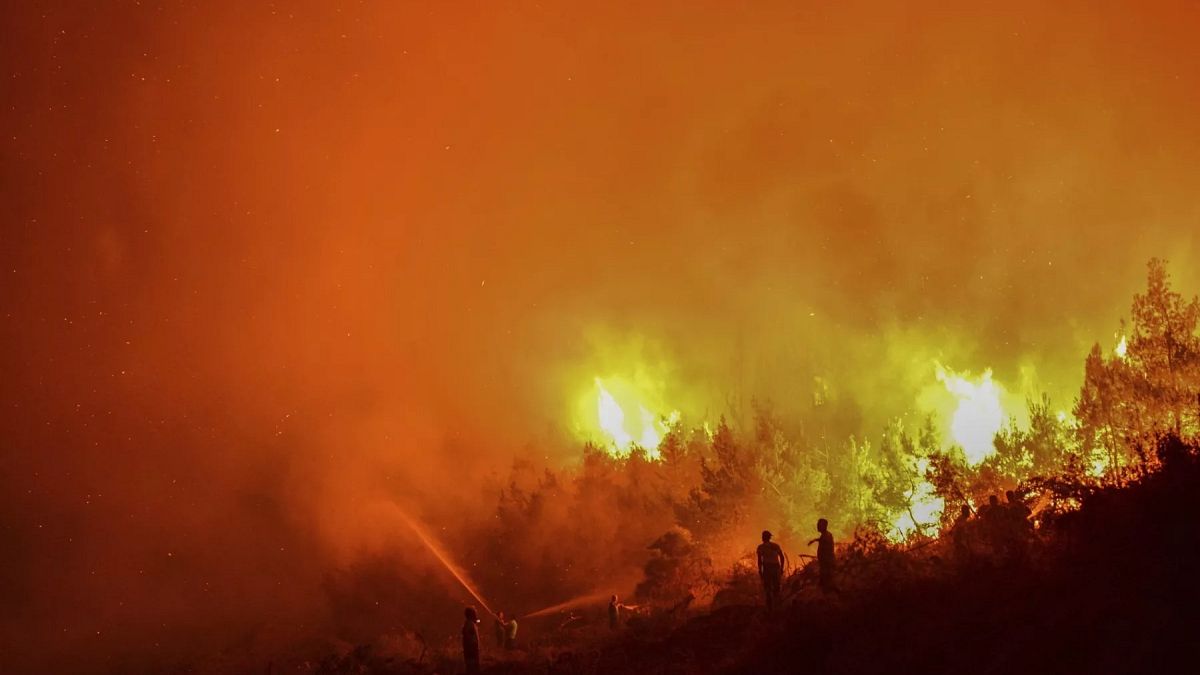

As the world continues to grapple with the impacts of climate change, recent events underscore both the urgency of the challenge and the ongoing efforts to address it. From unprecedented wildfires in Cyprus to the historic ruling by the United Nations’ top court on environmental rights, stakeholders across the globe are highlighting the need for immediate and sustained action.
In Cyprus, firefighters are valiantly battling large wildfires that have disrupted daily life and forced the evacuation of four villages. These fires coincided with the onset of a significant heatwave, with forecasts predicting temperatures to soar to 45 degrees Celsius, marking it as the hottest day of the year. The extreme temperatures and resulting wildfires are reflective of broader climate patterns that are causing similar distress in various parts of the globe. Despite the immediate challenges, firefighters and emergency services remain steadfast in their efforts to control the blazes and ensure the safety of affected communities.
In a transformative moment for climate law, the International Court of Justice (ICJ) has made a landmark ruling by asserting that a healthy environment is a human right. This non-binding advisory opinion marks a pivotal point in international climate policy. According to experts, this decision could significantly influence future actions by national governments, potentially leading to stronger climate regulations and accountability measures. The ruling specifies the critical role of countries in mitigating the effects of climate change, highlighting the responsibilities of states to prevent harm to the climate system and the imperative to move away from fossil fuels. Nations that fail to adhere to these responsibilities might face legal obligations to compensate for climate damage.
Concurrently, climate activists have been actively advocating for immediate governmental action. Outside the ICJ, activists rallied with banners that prominently declared, “States must ACT NOW.” Their message is clear: the time for action is now, and the legal framework supports this urgency. These mobilizations reflect growing public awareness and demand for policy shifts that align with the pressing needs of our planet.
Beyond legal advancements and public protest, the environmental impact of climate change continues to manifest in ecological systems. Off the coast of South Australia, scientists are raising alarms about an algal bloom resulting from a marine heatwave. This event is anticipated to rival the destructive black summer fires, known for their detrimental effects on both wildlife and human habitats. The catastrophic bloom has prompted a Senate inquiry into what has been termed a “human-mediated disaster,” urging long-term strategic responses and ensuring protection for at-risk species.
These developments collectively highlight the multifaceted nature of climate challenges and the corresponding global responses. From on-the-ground firefighting efforts and judicial rulings to public activism and environmental research, the international community is engaged in a complex dance of addressing urgent climate-related emergencies while paving the way for sustained ecological stewardship.
While the challenges are formidable, the concerted efforts evident in these stories provide hope and direction. They remind us of our interconnectedness with the environment and the imperative to act mindfully, with both immediacy and foresight. Looking ahead, maintaining a collaborative global approach will be crucial in mitigating climate impacts and ensuring a sustainable future for the planet. In this shared journey, every action counts, as does every commitment to preserving the natural world for generations to come.
Source: {link}
